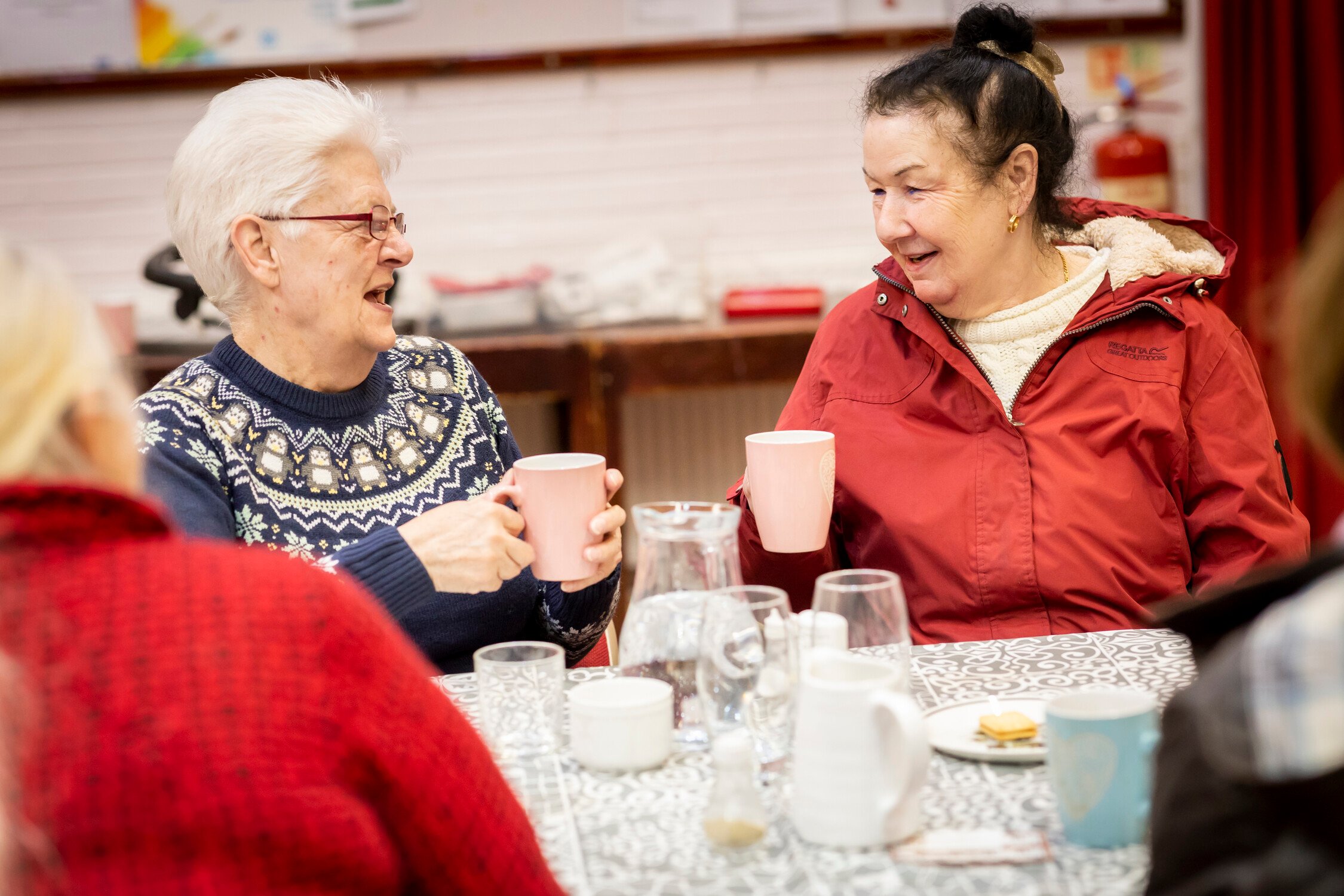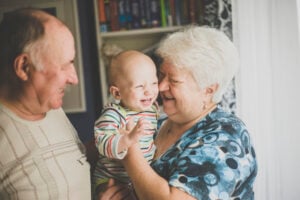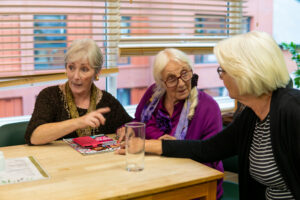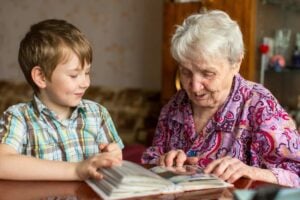Dealing with dehydration in the elderly
Tags
24 Hours of Care at Home
Elderly people are at a higher risk of dehydration due to physiological changes that occur as we age. Many conditions and increased physical or mental frailty also complicate the issue.
The body is made up of around 60% water which helps the brain and body to function effectively.
It’s crucial that we know how much fluid we need to stay healthy, which drinks are best for us, and why our fluid requirements may change in later life.
Drinking the right amount of water regulates our body temperature, gets nutrients to our cells, lubricates our joints and keeps our organs healthy. As such, carers and family members need to be aware of the common risk factors and consequences of dehydration, and how to recognise the signs.
What are the signs of dehydration?
Common signs of dehydration include –
- a dry mouth, tongue and lips.
- peeing less often than usual
- sunken eyes
- dry, papery skin.
- being unusually confused or disoriented
- feeling dizzy
- feeling tired or drowsy
These signs are frequently seen in other conditions, so they might be due to another cause – it’s important to consult a medical professional if you’re concerned about these symptoms.
An elderly person who is dehydrated will often have concentrated urine which can appear dark and have a strong odour, while normal urine should be pale in colour and be odourless. Click the link below to view NHS guidance.
Did you know?
Our bodies lose water throughout the day, not only in our urine and sweat, but through the skin and in small amounts when we breathe.
Can dehydration cause blurred vision?
Blurred vision can be a sign of dehydration in the elderly, as the tear ducts can stop producing tears when there’s not enough water in the body. Tears are essential to keeping the eyes lubricated, comfortable and free from debris, so a lack of tears can easily lead to dry, irritated eyes and blurry vision.
Can dehydration cause headaches?
It’s estimated that the brain is three quarters water. As the control centre of all our bodily functions, feelings, and thoughts, preventing dehydration is crucial for keeping our brains working properly.
Fluid loss in the brain can cause it to temporarily shrink, pulling away from the skull and leading to a headache. If you or an elderly loved one experiences a sudden headache on a hot day, it could be a sign to drink more water.
Can dehydration cause high blood pressure?
Chronic, and regular bouts of dehydration in older adults have been linked to blood pressure changes, and may cause it to spike, or reduce.
Dehydration can lead to a lower volume of blood in the body – which causes the overall blood pressure to reduce.
While more research is needed into the impact of dehydration on high blood pressure, experts believe that when you lose too much fluid, the water content of the blood decreases, and sodium levels can increase to high levels. To counteract this, the body releases a hormone called Vasopressin that causes blood vessels to narrow – temporarily raising blood pressure.
Can dehydration cause UTIs?
When fluid is low, the body tries to store liquid in any way it can to ensure it has enough to keep functioning. One of the ways it does this is by preventing urination, however this can upset the concentration or balance of natural acids in urine, and lead to bacterial growth that causes urinary tract infections.
Spotting heatstroke
If you’re caring for a loved one in hot weather – it’s important to frequently check they’re not suffering any of the following symptoms. These can all indicate heat stroke:
- Headache
- Dizziness and confusion
- Loss of appetite and feeling sick.
- Excessive sweating and pale, clammy skin.
- Cramps in the arms, legs and stomach.
- Fast breathing or pulse.
- Temperature of 38C or above.
- Being very thirsty.
Why is dehydration a risk for older people?
Often, the first sign of dehydration is feeling thirsty. However, as we age, our thirst sensation may become weaker, meaning we may not realise that our bodies need more water. A loss of thirst is also common for those living with dementia or who have had a stroke.
Water makes up over half our bodyweight. However, older people generally have a lower percentage of water in their bodies, which puts them at greater risk of dehydration, especially in hot weather.
Some older people may be unable to drink on their own due to mobility issues, cognitive impairment, or dementia. If they have swallowing difficulties this can make it difficult to stay properly hydrated too, and makes it even more important for them to have a family member or carer to support their fluid intake.
Impaired renal function can also be a risk factor. As the kidneys age and their function slows, so does the hormonal response to dehydration.
Some medications such as laxatives can exacerbate the likelihood of an elderly person becoming dehydrated. If an older person is experiencing incontinence, they may deliberately restrict their intake of fluids, as they are worried about “accidents”.
Dehydration and medications
Many older people take warfarin to reduce blood clots. Dehydration can lead to lower levels of fluid in the blood, causing it to thicken, and may reduce the effectiveness of Warfarin.
Those who take Warfarin also need to have regular blood tests to ensure they are on the right dose. Dehydration may impact these results, making it more difficult to work out how much warfarin they really need.

Recognising and preventing dehydration
If an older person becomes dehydrated, they are more likely to be hospitalised. Even if they are only mildly dehydrated, they will likely feel tired and will have poorer concentration, memory problems and slower reaction times.
Other complications of dehydration include weakness, dizziness and therefore an increased risk of falls.
The dehydration skin test
If you’re worried about a loved one who struggles to drink enough water, you may wonder if there’s an easy way to test and monitor hydration levels at home.
The easiest way to do this is with a simple skin test:
- Gently pinch the skin on the back of the hand, arm, or abdomen.
- Hydrated skin will spring back instantly.
- If the skin takes longer to bounce back, then dehydration is likely.
If you’re worried about dehydration, it’s always best to seek medical advice or call the NHS on 111.
The most important strategy for preventing dehydration is to recognise when the person’s fluid intake is inadequate and ensure they drink more.
Residents in care homes may not drink enough because they are worried about not being able to get to the toilet in time, particularly if they need assistance. They may be physically unable to reach a drink when they need one too.
Staff training on the importance of hydration, monitoring of fluid intake, assistance when necessary and the provision of the person’s preferred fluids are all important in care homes.
If your loved one receives elderly care at home, try to ensure they drink a minimum of five eight-ounce glasses of water or clear fluids each day. They should always have a drink accessible, and it is a good idea to monitor fluid intake.
They should be offered a variety of fluids, both hot and cold and given the assistance they need if they are unable to drink independently. Your loved one may find drinking easier with an aid such as a cup with a handle or lid, or by using a straw depending on their condition.
When they take their medication, offer a full glass of water to help them swallow it.
Hydration options
Unsure what to drink? The British Nutrition Foundation recommend the following. Download these tips for free using the link below.
Water
Drink plenty
A good choice throughout the day. Try adding lemon, mint or cucumber for extra flavour.
Milk
Drink regularly
Contains calcium, B vitamins and protein. Whole milk can be good for adults with poor appetites.
100% fruit juice
Have to suit
A good source of vitamins and minerals. a 150ml glass is 1 of your 5 a day.
Soups & smoothies
Have to suit
Provides a good range of vitamins and minerals if they contain a lot of fruit or vegetables.
Soft drinks & ice lollies
Have occasionally
Satisfying on a hot day. However, they may contain a lot of sugar and few nutrients.
Tea and coffee
Drink to suit
Drink with plenty of milk if you want to add extra calories and protein. Avoid caffeinated options.
Plant based milks
Have to suit
Such as oat, soy, and almond. Be mindful that these can contain sugar, and look for options fortified with calcium and vitamins
Sports drinks
Have to suit
Usually contain carbohydrates and electrolytes to help fluid be absorbed quickly. Look for options low in sugar.
Energy drinks
Drink rarely
High is sugar, caffeine and other stimulants. Not recommended for older people.
Quick hydration tips
It can be difficult to persuade your loved one to drink the amount of fluid they need, especially when they do not feel thirsty or they are worried about incontinence. You could try the following approaches –
Offer drinks in a positive way
Adults need 6 to 8 glasses of fluid each day. Approach them positively offering a drink as an attractive option rather than as a necessity. Offer drinks regularly, and leave them in an accessible place so that your loved one can take them little and often if they prefer.
Avoid too much caffeine and alcohol
While tea may be the nation’s favourite drink, it does still contain caffeine, which can have a diuretic effect and lead to the urge to urinate more frequently. Switching to a decaffeinated variety is widely recommended.
Listen to the body, especially in summer
If you’re out in the sun, increase fluid intake and pay more attention to the early signs of dehydration. Be alert to symptoms such as headaches, fatigue, nausea and lightheadedness.
Mix up their fluids
As we've mentioned, water isn't the only way to stay hydrated (although it's the best). Glasses of squash and even a bowl of soup can help keep with hydration. Certain foods like fruit, vegetables and some dairy products have a high water content, and can top up their fluid intake.
This article is for informational purposes only and not to be taken as medical advice. For medical advice, always consult your GP.
Read more care guides

Creating a dementia-friendly home environment
Creating a dementia friendly home environment Jump to Lighting Floors Furniture Technology Noise levels Outdoor spaces Bedroom Kitchen Bathroom Living with dementia can be

Living with Dementia: Your Essential Guide
Living with dementia – your essential guide In this guide, we’ve shared expert views, practical advice and personal stories on navigating life with dementia.

How to prepare for a live-in caregiver
Care at home: how to prepare the home for a live-in caregiver A live-in carer can make a massive difference to your loved one’s quality

6 tips for finding the right live-in carer
Finding the right live-in carer is a significant and deeply personal decision, impacting your loved one and the entire family. You’re seeking someone trustworthy, compassionate,

The cost of care – everything you need to know
The true cost of care – everything you need to know Discover the true cost of care and explore your funding options with our care

Understanding autism in older adults
While Autism is usually diagnosed in childhood, an increasing number of older adults are being formally diagnosed in later life. Masking autism symptoms can result
